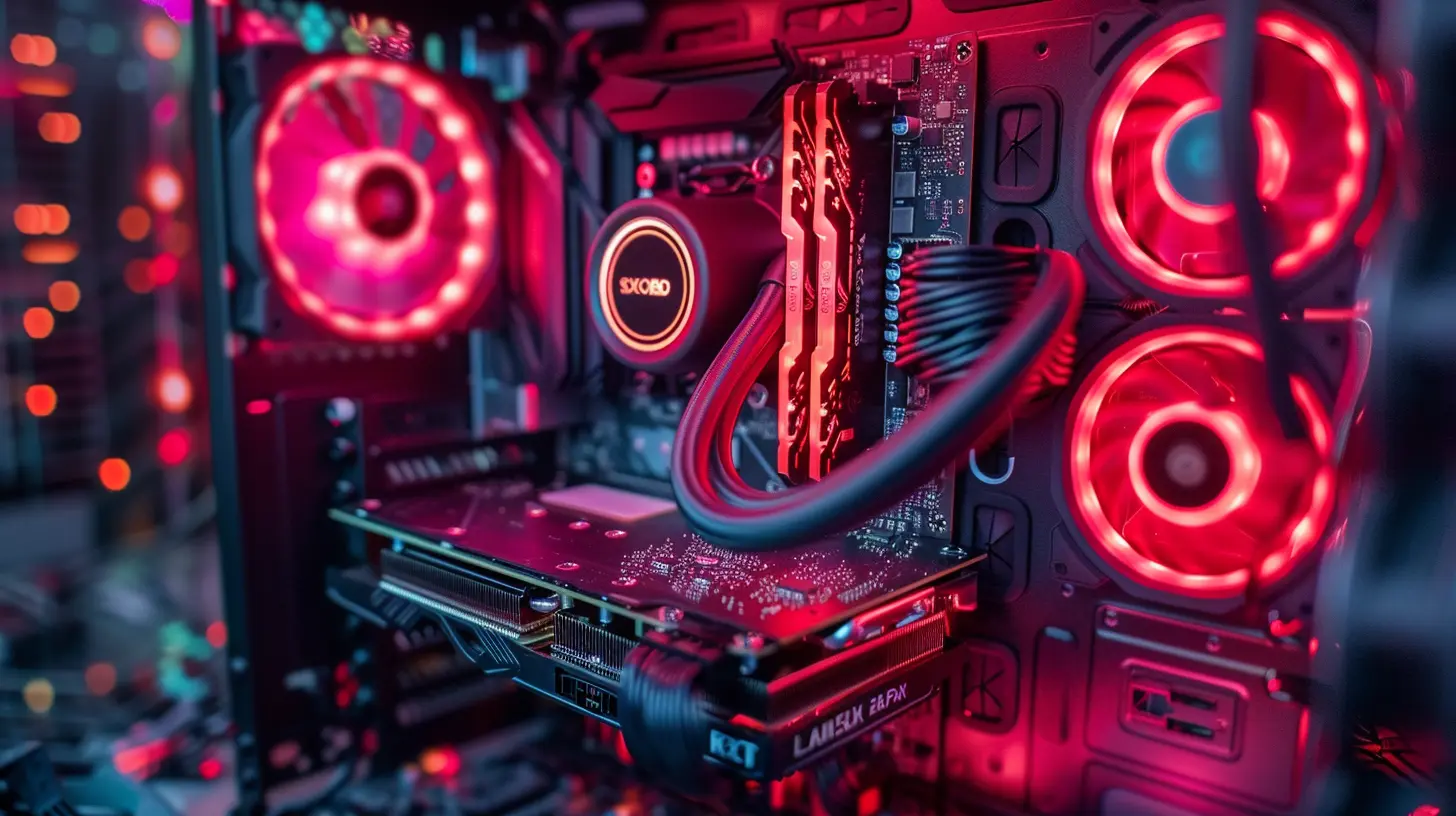Understanding the Impact of Processor Cores on Gaming
29 March 2025
Gaming has come a long way from its simple pixelated beginnings. Today’s gaming experiences are rich with stunning visuals, lifelike physics, and immersive worlds—thanks in large part to advancements in hardware. Among these is the mighty processor, specifically its cores. But let’s face it, processor cores can sound a bit technical. What does "cores" even mean? And more importantly, how do they affect your gaming sessions? Buckle up, because we’re about to dig deep into the role of processor cores in gaming and why they matter now more than ever.
What Are Processor Cores, Anyway?
Let’s start with the basics. A processor core is essentially the brain of your CPU (central processing unit). If the CPU is the engine of your gaming rig, the cores are the cylinders that make it run. In the old days, CPUs came with just one core, which meant they could only handle one task at a time. But as games and software became more demanding, processors evolved into multi-core models. Modern CPUs now come with two, four, six, eight—or even more—cores.Each core can handle its own tasks independently of the others. Think of it like a group of chefs in a busy kitchen. One chef (a single core) can chop vegetables, but if you’ve got multiple chefs (multiple cores), they can divide tasks like chopping, sautéing, and plating. This division of labor allows for faster and more efficient work, and that’s exactly what’s happening under the hood of your gaming PC.
Why Processor Cores Are Crucial for Gaming
Okay, so more cores mean more chefs in the kitchen. But does that really matter when it comes to gaming? Short answer: absolutely, yes. But the long answer is a little more nuanced. Let’s break it down.1. Multitasking in Games
Modern games aren’t simple programs; they’re incredibly complex ecosystems. You’ve got the game logic, physics simulations, AI for enemies or NPCs, 3D rendering, and sound processing all happening at the same time. This is where multi-core processors shine. While one core might handle rendering graphics, another can process in-game physics, and yet another can handle background tasks like game-saving or monitoring inputs from your controller.For example, think of a massive open-world game like Cyberpunk 2077 or Elden Ring. These games demand an insane amount of processing power because there’s so much going on all at once—NPCs walking around, weather systems changing, enemies planning their next moves. Having more cores allows your CPU to divide and conquer, ensuring the game runs smoother.
2. Higher FPS (Frames Per Second)
Let’s be real—every gamer loves high FPS, whether you’re playing competitive titles like Valorant or just immersing yourself in cinematic single-player experiences. While your GPU (graphics processing unit) does the heavy lifting for rendering visuals, your CPU determines how efficiently data is fed to the GPU. If your CPU is limited by having too few cores, it creates a bottleneck, meaning your GPU can’t reach its full potential.A CPU with more cores can handle data faster and more efficiently, enabling better communication with the GPU. This results in higher frame rates and less stuttering. In short, having a faster, multi-core CPU gives you the kind of buttery-smooth gameplay that makes you never want to leave your desk.
3. Next-Gen Gaming: More Cores = Future-Proofing
Gaming is constantly evolving, with developers pushing the boundaries of what’s possible. Next-gen titles are being developed with multi-core processors in mind. You might not notice a huge improvement using a 12-core CPU in a less-demanding game like Minecraft, but when you pop in a hyper-realistic game like Starfield or The Last of Us Part I, those extra cores will absolutely earn their keep.In fact, many developers are now optimizing their games to take full advantage of multiple cores. Some engines, like Unreal Engine 5, are heavily multithreaded, meaning they split tasks across as many cores as possible. By investing in a multi-core processor today, you’re not just buying performance for the games of now—you’re also future-proofing for the blockbusters of tomorrow.
Are More Processor Cores Always Better?
Here’s where things get interesting. While it might seem like more cores are always better, that’s not entirely true. There is such a thing as overkill, especially when it comes to gaming. Not all games can utilize every core your CPU has. Older titles and even some newer, less-graphically-intensive games are still designed to work with fewer cores. In these cases, having an eight-core or twelve-core processor won’t give you a noticeable advantage over a quad-core CPU.Additionally, there’s the issue of diminishing returns. Beyond a certain point, adding more cores won’t significantly boost your gaming performance unless the game is specifically optimized for them. Instead, you’ll want to strike a balance. A six-core or eight-core CPU is often the sweet spot for most gamers, offering excellent performance without breaking the bank.
The Role of Clock Speed vs. Core Count
Let’s throw another variable into the mix: clock speed. This measures how fast each core processes data, typically expressed in gigahertz (GHz). Think of it like the speed of each chef in our kitchen analogy. While having more chefs is great, if they work slowly, you’ll still run into delays.So, should you prioritize clock speed or core count when building your gaming PC? The answer is—it depends. For most gaming scenarios, a CPU with fewer cores but higher clock speeds will perform better than one with tons of cores running at lower speeds. However, for multitasking or using your PC for both gaming and other demanding tasks (like streaming or video editing), higher core counts become more valuable.
How to Choose the Right Processor for Gaming
When choosing a processor, consider the following:1. Your Budget
CPUs range from budget-friendly dual-core models to high-end 16-core beasts. Determine how much you’re willing to spend, and make sure you allocate enough for other components like your GPU, RAM, and storage.2. What Games You Play
If you mainly play esports titles like League of Legends or Counter-Strike: Global Offensive, a quad-core CPU could be sufficient. But if you love graphically intensive AAA games, aim for at least six cores.3. Other Activities
Do you stream on Twitch? Edit videos? Create 3D animations? If yes, prioritize a CPU with higher core counts to handle multitasking alongside gaming.4. Brand Battle: Intel vs. AMD
Both Intel and AMD offer excellent processors, but their designs cater to different needs. Intel is known for high clock speeds, while AMD’s Ryzen lineup often boasts better core counts for multitasking. Do your research and pick what aligns with your gaming goals.The Final Verdict
Processor cores play a massive role in gaming performance—but they aren’t the only factor. A well-balanced gaming rig with a capable GPU, sufficient RAM, and fast storage is just as important. That said, as games become more demanding and optimized for multithreaded performance, a multi-core CPU is no longer a luxury—it’s a necessity. So, if you’re building or upgrading your gaming system, don’t skimp on your CPU. A six-core or eight-core processor is usually the sweet spot, but if your budget allows it, going for more cores can provide an edge, especially for next-gen gaming.In the end, gaming is all about having fun. Whether you’re aiming for competitive high FPS or simply exploring a breathtaking open world, the right processor can make all the difference. Don’t let a bottleneck hold you back—choose your CPU wisely and game on!
all images in this post were generated using AI tools
Category:
System RequirementsAuthor:

Brianna Reyes
Discussion
rate this article
5 comments
Kristen Wood
Processor cores in gaming are like a pizza cutter slicing through a cheesy challenge! The more slices (cores) you have, the smoother the gaming experience. So, whether you’re battling pixelated dragons or exploring vast worlds, remember: more cores might just be the extra cheese you need!
April 10, 2025 at 3:09 PM

Brianna Reyes
Great analogy! More cores do enhance performance, making gaming smoother and more enjoyable. Thanks for your insight!
Aurelia Pratt
Processor cores are like party guests—more of them means more fun! Just remember, if one core tries to hog the snacks (or processing power), the others might throw a digital tantrum. So, let’s keep the cores friendly and gaming smooth—no core wars allowed!
April 7, 2025 at 4:35 PM

Brianna Reyes
Great analogy! Balancing cores is key to optimizing performance and ensuring a seamless gaming experience. Let's keep the party harmonious!
Valen Soto
Great article! Your insights on how processor cores influence gaming performance are enlightening. It’s a vital topic for gamers looking to optimize their setups. Thank you!
April 6, 2025 at 3:34 AM

Brianna Reyes
Thank you for your kind words! I'm glad you found the insights helpful for optimizing gaming setups. Happy gaming!
Oriana McCray
Great insights on how processor cores enhance gaming performance effectively!
April 5, 2025 at 4:32 PM

Brianna Reyes
Thank you! I'm glad you found the insights helpful in understanding the role of processor cores in gaming performance.
Amos Banks
Great insights! Core count matters!
March 31, 2025 at 2:52 PM

Brianna Reyes
Thank you! I'm glad you found it helpful! Core count indeed plays a crucial role in gaming performance.


